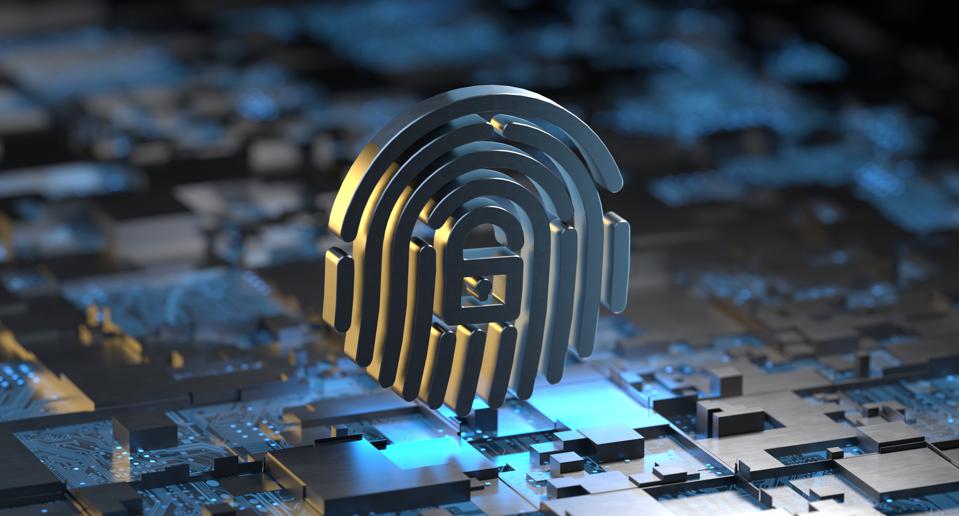Guard Digital Identity With Artificial Intelligence
With artificial intelligence (AI) and biometrics, users enjoy more streamlined processes while reaping the benefits of added security.

With more companies moving their business models online and adopting new solutions, it's been opening up more opportunities for cybercrime and identity theft. The spread of Covid-19 has only made it worse, as the Federal Trade Commission (FTC) estimated a loss of $13.4 million to Covid-19 scams as of April 15, 2020.
This makes the protection of digital identity more important than ever before. This is also a new era of identity authentication. With artificial intelligence (AI) and biometrics, users today are enjoying more streamlined processes while reaping the benefits of added security.
Let's examine how organizations can secure data and identities through AI.
The Current Scenario
Since the rise of Covid-19, businesses and consumers have had to onboard many digital processes in their lives. This has led to a vast production of data and, subsequently, to the rapid development of cybercrime and digital identity theft.
In order to protect data, digital identities need to meet a stricter set of security regulations. Stolen identities can allow criminals to impersonate someone else and access secured resources. Depending on the scale of the crime and company, this could have a massive impact.
For example, AI-generated deepfake technology has come a long way in recent years. Deepfakes are an area of serious concern when it comes to identity theft, as this technology can be used to impersonate highly influential people or spread false information.
Ethical AI solutions can combat this type of fraud by determining whether something has been tampered with, like a deepfake video. This can help stop the spread of disinformation and authenticate whether someone is who they say they are.
Industries Under The Threat Of Digital Identity Fraud
Here are some of the main industries that are most at risk of digital identity fraud and why they should implement advanced AI solutions:
• Financial service providers: To safely transfer money and open accounts.
• Automobile industry: To keep personal information, like driver's licenses, safe.
• Insurance: To be able to access insurance contracts online and use the online space safely for insurance queries.
• Entertainment industry: To make sure there are no fake profiles and that certain regulations, such as age limits, are adhered to.
• E-commerce: To ensure payment processes and credit services are safe to use, as well as to protect personal profile information.
• Educational sector: Verification for students accessing online portals and writing online exams.
How AI Secures Data and Identities
Digital identity fraud can affect a wide range of businesses, industries and individuals. If a cybercriminal steals someone's personal data, there are many ways in which they can use it. Here are some of the ways AI can help secure data and digital identities.
• Preventing identity theft. AI offers greater accuracy and speed when it comes to verifying a person's identity. By using AI, organizations can protect their systems from unauthorized access and, therefore, offer greater protection for digital identities.
Specialized tools can monitor our ID use in real time for improved AI security results. Using real-time and biometric data in more sophisticated systems makes it much more difficult for cybercriminals. For example, like facial recognition, AI and biometric data prevent identity theft as cybercriminals would not be able to gain access to information by only providing credentials.
• Protecting air passengers. AI offers a more efficient and accurate process than one that humans can provide. Identity authentication for air passengers through AI can deliver a smoother process for ID verification. Air passenger data remains secure, while the systems can produce an optimized rate of verifications.
• Analyzing telecom networks. Artificial intelligence is driving significant growth in the telecoms industry. AI can rapidly process and analyze massive volumes of data to pull out useful insights. Not only this, but AI and machine learning make it easier to implement algorithms that can identify fraudulent activities on a network.
These algorithms learn the difference between normal and abnormal trends. Therefore, they can detect and investigate abnormalities that may come from fraudulent activities.
• Reducing financial fraud. Financial crimes are one of the most urgent areas of online fraud. AI can help improve fraud detection and protect sensitive data vastly.
AI offers more accurate data analysis and can analyze massive amounts of transaction data and malicious transactions in real time. Advanced AI technologies can detect fraud instantly, as well. This can help fraud analysts in their roles and help prevent identity fraud and nuanced abuse attacks.
• Biometric authentication. Using biometrics provides a multifactor authentication process for more secure identity verification. Artificial can further enhance biometrics and help develop data-driven security protocols.
For example, if a system stores behavioral biometric activity in a database, AI can take the stored biometric data and efficiently analyze and process it for a streamlined security result. It can then spot any discrepancies that indicate fraud or identity theft.
Final Thoughts
Fortunately, AI has the power to save the world from digital identity fraud. In the fight against ID theft, it is already a strong weapon. AI systems are entirely likely to end the reign of the individual hacker since they are already able to detect possible security flaws in the code even before a software program has been released.
AI authentication is still in the early phases, but businesses can implement AI authentication by adding intelligent adaptive authentication (detecting location and device fingerprints to identify the consumer and trigger MFA), biometric authentication (identifying consumers based on their face or fingerprints) and smart data filters (identity fraud IPs, fraud domains, fake user data, etc.).
A well-developed AI protection system will have the ability to respond in nanoseconds to close a leak. Increasingly, the global human developer community will be dependent on automated AI code reviews to reduce costs and the likelihood of human error.
Originally published at Forbes
/https%3A%2F%2Fspecials-images.forbesimg.com%2Fimageserve%2F606b0e3aed7e0077593f14d4%2F0x0.jpg)


